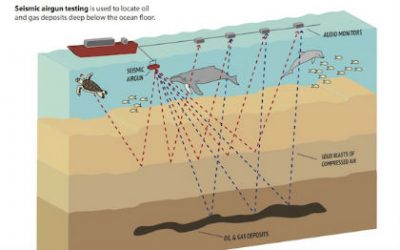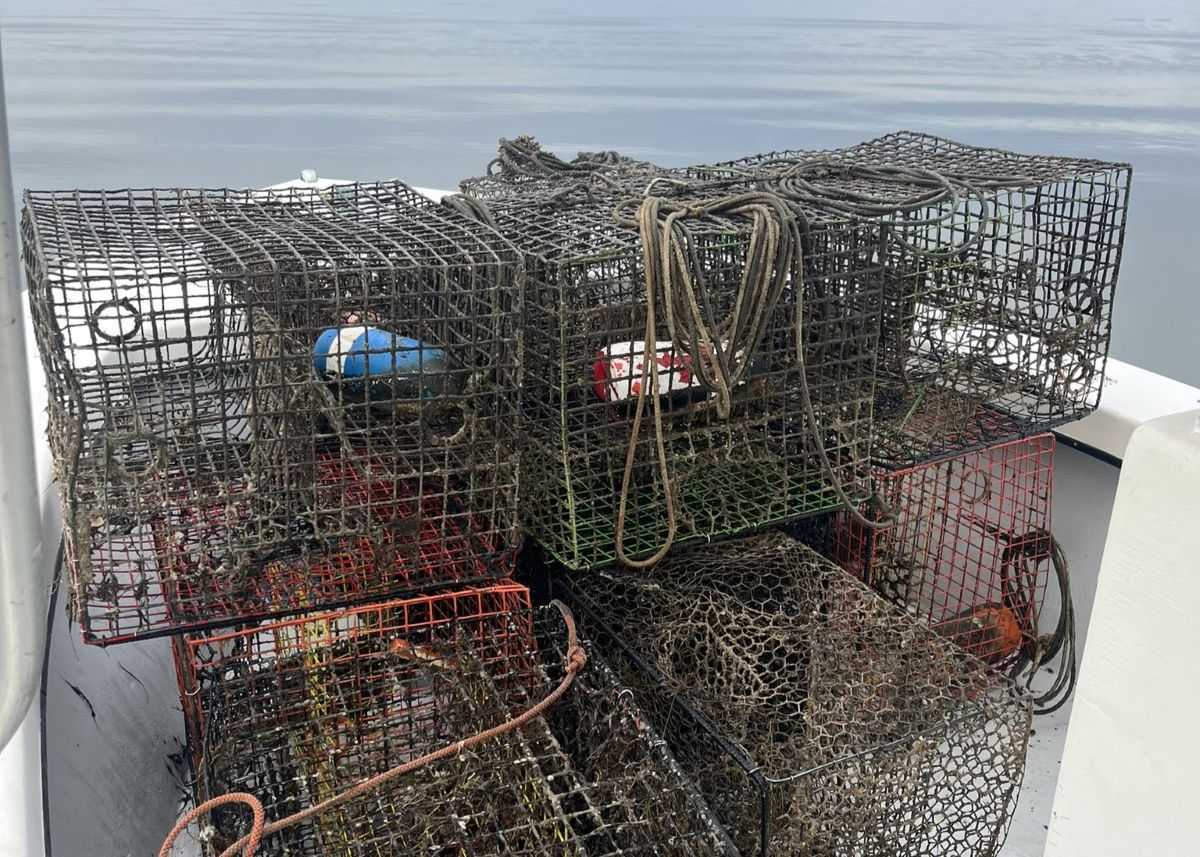
This story was updated June 17 to include a response from WesternGeco’s parent company.
MOREHEAD CITY – The North Carolina Division of Coastal Management says a proposed seismic survey for oil and gas off the North Carolina coast is inconsistent with the state’s coastal management policies.
Supporter Spotlight
The division said that after a review, it formally objected to applicant WesternGeco’s proposal to conduct seismic surveying and found it inconsistent with state policies, as outlined in a letter to the company from Coastal Management Director Braxton Davis.
“Our review included substantial input from outside subject matter experts, North Carolina state agencies and the general public,” Davis said in the letter. “Based on our review, we have determined that the proposed seismic surveys would have significant adverse impacts on fish and marine food webs, sensitive fish habitats, commercial and recreational fisheries, and the coastal economy.”

“WesternGeco is committed to complying with state and federal regulatory requirements in carrying out its business,” a spokesperson for WesternGeco’s parent company, Schlumberger, said June 17 in an email response to Coastal Review Online’s June 12 query.
WesternGeco proposes to conduct a 2-D seismic survey off the North Carolina coast to glean information about the feasibility of offshore drilling for oil and natural gas. The full proposed survey area extends from about 19 miles offshore of the southeast coast of Maryland south to about 50 miles offshore of St. Augustine, Florida. The survey would involve a vessel towing a seismic air gun array, with operations occurring an estimated 208 days over a period of about a year.
The Division of Coastal Management said it expects that air gun arrays would fire about every 10 seconds continuously, based on conditions. The resulting sound would span a range of frequencies from about 10 to 2,000 hertz, or cycles per second, at an amplitude ranging from 225 to 260 decibels.
Supporter Spotlight
Although state law does not require coastal development permits for projects in federal waters, where all seismic survey activity would take place, but the federal Coastal Zone Management Act requires that projects needing federal permits be found consistent with the state’s coastal policies when the proposed activity may affect any land use, water use or natural resource within the state’s coastal zone.
Under the Coastal Zone Management Act, WesternGeco may appeal the state’s objection to the federal secretary of commerce, who can override or sustain the state objection. The appeal must be filed within 30 days of receipt.
A spokesperson for an industry trade group told Coastal Review Online that it was reviewing the determination.
“The International Association of Geophysical Contractors is reviewing and evaluating North Carolina’s determination,” Gail Adams Jackson, IAGC’s vice president of Communications and External Affairs, said in a statement.
The North Carolina chapter of the Sierra Club praised the division’s action.
“Thanks and congratulations to The Division of Coastal Management for recognizing the environmental and economic importance of protecting North Carolina’s coastline and marine species from devastating seismic blasting,” said Erin Carey, the N.C. Sierra Club’s coastal conservation program coordinator. “We hope federal authorities will show the same wisdom when they consider WesternGeco’s proposal and any other seismic permit application. Seismic blasting – like offshore drilling – would do awful, long-term damage to our coastline and should be prevented.”







